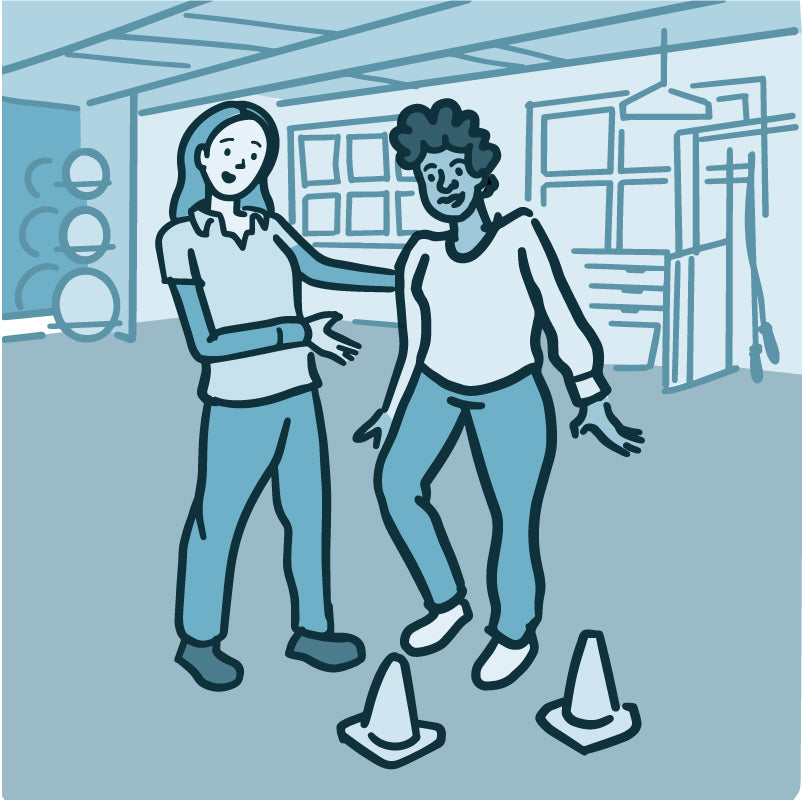Progressive supranuclear palsy (PSP) is a rare, progressive neurological disorder that affects the brainstem and basal ganglia. It is characterized by a variety of symptoms, including changes in mood and behavior, impaired speech and swallowing, and difficulty with balance and coordination. In this blog post, we will explore the symptom of balance in PSP in more detail.
Balance issues in PSP
The balance system in the body is complex, involving input from the eyes, inner ear, and proprioceptive sensors in the muscles and joints. When PSP affects the parts of the brain that control balance, it can cause difficulty with balance and coordination. Balance issues in PSP typically become more pronounced as the disease progresses.
Symptoms of balance issues in PSP
Balance issues in PSP can cause a range of symptoms, including: Difficulty walking: One of the most common symptoms of balance issues in PSP is difficulty walking. This can manifest as unsteady gait, shuffling gait, or reduced stride length.
-
Falls: Balance issues can also increase the risk of falls, particularly in individuals with PSP who are older or have other medical conditions.
-
Inability to stand without support: As PSP progresses, individuals may become unable to stand without support due to balance issues.
-
Impaired eye movements: PSP can cause impairments in eye movements, particularly upward and downward gaze, which can contribute to balance issues.
-
Dizziness or vertigo: Some individuals with PSP may experience dizziness or vertigo, which can exacerbate balance issues.
Managing balance issues in PSP
There is currently no cure for PSP, but there are strategies that can help manage balance issues and improve quality of life for people with the condition. Some of these strategies include:
-
Physical therapy: Physical therapy can help individuals with PSP improve their balance and coordination. Physical therapists can provide exercises to strengthen the muscles involved in walking and teach strategies to reduce the risk of falls.
-
Assistive devices: Assistive devices such as canes, walkers, and braces can help individuals with PSP maintain their balance and reduce the risk of falls.
-
Home modifications: Modifying the home environment can also help reduce the risk of falls. This can include removing tripping hazards, installing grab bars in the bathroom, and improving lighting.
-
Medications: Medications can be used to manage some of the symptoms of PSP, including balance issues. For example, levodopa, a medication used to treat Parkinson's disease, can help improve motor function in some individuals with PSP.
It is important to work with a healthcare team to develop a personalized treatment plan for balance issues in PSP. A team may include a neurologist, physical therapist, occupational therapist, and other healthcare professionals.
In conclusion, balance issues are a common and challenging symptom of PSP. Difficulty walking, falls, inability to stand without support, impaired eye movements, and dizziness or vertigo are some of the symptoms associated with balance issues in PSP. However, there are strategies that can help manage balance issues and improve quality of life for people with PSP, including physical therapy, assistive devices, home modifications, and medications. By addressing balance issues early on, it is possible to reduce the risk of falls and improve mobility for people with PSP.


 Donate
Donate




3 comments
My 88-year-old mother was diagnosed with PSP last year and complains of vertigo a lot of the time. She thinks an over the counter medication will help, but will it, really? I pray for a cure for this disease.
Always dizzy. 7/ 24…not vertgo. what to do. Neurologist is sending me to see another neuro for this. He is the best in mtl…..supposedly. not using any medication yet.
I am at the hospital right now because i am always dizzy. It has been over a year. And it is not getting any better. How long will i feel this way. Was diagnosed with psp.i live in montreal